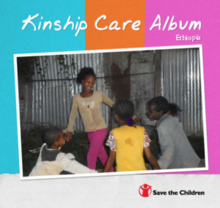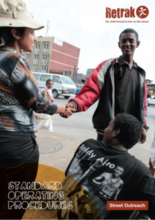Displaying 1111 - 1120 of 1617
In this post, the organization Against Child Trafficking “call upon the Government of Uganda to immediately pass the Children’s Act revisions and allow Uganda and Ugandan laws to dictate local solutions for children, not foreign adoption agencies.”
Pour la plupart des Burundais qui ont fui la violence qui règne chez eux, le camp de Mahama au Rwanda sera leur domicile provisoire. Comme dans n'importe quel conflit, les gens se trouvent non seulement arrachés de leurs foyers, mais aussi, souvent, de leurs familles.
The CPC Learning Network and UNHCR are collaborating to develop and test a Child Protection Index (CPI), a measure of strength of the child protection system in refugee settings, based on UNHCR’s Framework for the Protection of Children. This report details the results of the baseline study conducted from December 2014-February 2015 in Kiryandongo and Adjumani refugee settlements, Uganda.
REPSSI is hosting the 3rd annual Psychosocial Support Forum on the African continent in Victoria Falls, Zimbabwe
This interpretive study examines the experiences of 54 Ethiopian emerging adults who had aged out of institutional care facilities.
This album presents viewpoints of children and young people, who have been engaged in this participatory research on kinship care - as advisors, researchers, respondents and documenters during the months of June to December, 2014.
Retrak has published new Standard Operating Procedures (SOPs) on street outreach, which is the beginning of its relationship building with children on the streets and the start of them finding a way back to family care.
This study was designed to evaluate the effectiveness of a family-level economic strengthening intervention with regard to school attendance, school grades, and self-esteem in AIDS-orphaned adolescents aged 12-16 years from 10 public rural primary schools in southern Uganda.
On July 28, 2015, the CPC Learning Network hosted a webinar featuring Joanna Wakia, Monitoring and Research Advisor at Retrak, Charles Gwengwe, Executive Director at Chisomo Children’s Club, and Mr. McKnight Kalanda, Director of Child Affairs in the Malawi Ministry of Gender, Children, Disability, and Social Welfare.
The coalitions of Civil Society Organisations (CSO) in Uganda are advocating for an amendment of the Children Act 2015 to promote adoption within Uganda.


